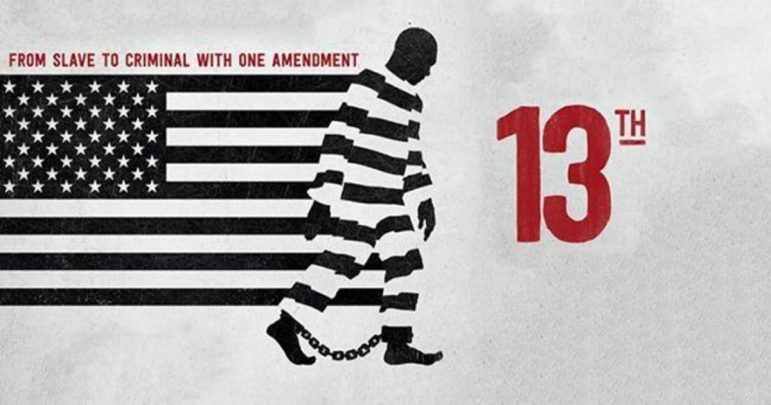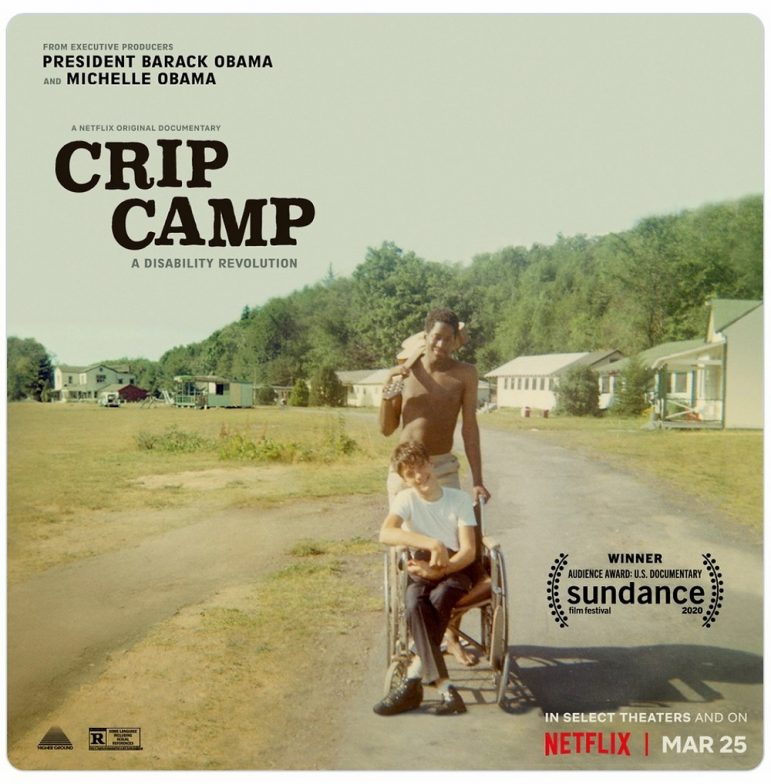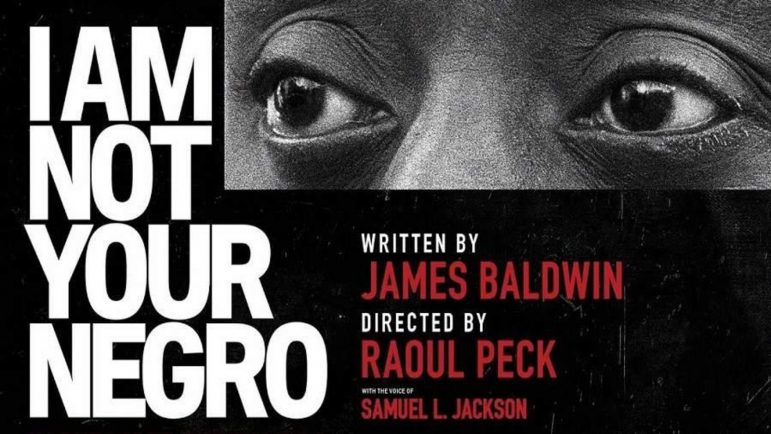Piedmonter Maude Pervere is a founder of the Appreciating Diversity Film Series (ADFS). Since 1997, ADFS has hosted free screenings in Oakland and Piedmont of documentaries that examine issues of diversity. She recently shared a list of vetted documentaries for educators, all of which can be streamed for free from the Oakland or Berkeley Public Libraries. We are sharing the list with our readers:
“Over the past more than twenty years, the Appreciating Diversity Film Series has vetted and screened many films that outline and illuminate the history of racism and inequality in America, as well as efforts to bend that history toward justice. For the past several years, ADFS has partnered with Piedmont Adult School in that effort.[2] All of the films that ADFS has screened are documentaries which have been selected for their clarity, attention to factual accuracy, and overall quality. Film subjects range from individuals[3] or events[4] to more sweeping histories[5] or comprehensive studies of the structure of inequality in America.[6]
We have found these films excellent jumping off points for constructive, informed conversations, because they both concentrate and illustrate information in a way that is highly engaging and provocative of further questioning. They have made for stimulating post-film conversations. In addition, many are accompanied by freely available teaching materials[7] that have been developed specifically for use in high schools and colleges, to help guide discussion and facilitate deeper learning.[8]
Free streaming access to documentary films for all students
An important core selection of the films ADFS has screened are now available to stream free, through the Oakland or Berkeley Public Library systems’ Kanopy service.[9] Kanopy is an application through which anyone with a local library card can sign in and borrow many of these films, to stream on a computer or cell phone at home. East Bay residents can sign up for library cards at both Oakland and Berkeley Public Libraries. Oakland Public Library allows each cardholder to view 4 films/month. Berkeley Public Library allows each cardholder to view 10 films/month. Unless otherwise noted in this memo, all of the films mentioned are now available free on Kanopy.
Using films in specific courses:
Teachers might use films to structure a whole unit on racism or inequality, or to engage students around specific events, individuals or studies. Films could have application in American history, civics, English, biology and more.
For example, an AMERICAN HISTORY or CIVICS course could include:
- Race: The Power of an Illusion: a remarkable 3-part documentary aimed at explaining the history of racialization in America, how racial categories came to be used, and then increasingly institutionalized. (There are extensive teaching materials from UC Berkeley and others on this whole series: https://www.racepowerofanillusion.org/clips/)
- The Difference Between Us follows a dozen students who compare their DNA and discover their closest genetic matches are as likely to be with people from other “races” as their own. Much of the program is devoted to understanding why.
- The Story We Tell traces the origins of the racial idea to the European conquest of the New World’s native people and the American slave system.
- The House We Live In demonstrates how government policies and institutions gave long-lasting advantages to white Americans in various forms, including the segregated housing opportunities of the GI Bill. (The Color of Law by UC Berkeley Professor Richard Rothstein is a recent text that further illuminates these policies, with a focus on the Bay Area. NB: Piedmont resident has written a term paper for his high school about Piedmont’s history of exclusion.[10]
- The Long Shadow: tells parts of the history of slavery from 1619 till today, from the point of view of a white southern woman whose ancestors were prominent slave owners.

- 13th: focuses on the economic history of slavery and post-Civil War racist legislation and practices that replaced it, as systems of racial control and forced labor from the years after the abolition of slavery to the present. (13th is not currently on Kanopy, but is free with a Netflix subscription.)
- The Chinese Exclusion Act: The history of the 1882 law that made it illegal for Chinese workers to come to the US and for Chinese nationals already here ever to become U.S. citizens. (2 hr. 40 min version on Kanopy; 2 hr. version free on pbs.org)
- Banished: American Ethnic Cleansing: In communities across the US a hundred years ago, white residents forced thousands of black families to flee their homes. Even a century later, these towns remain almost entirely white. https://www.pbs.org/independentlens/banished/film.html
- And Then They Came for Us: about the internment of Japanese and Japanese American people during World War II, and its relationship to the Muslim travel ban.
- At the River I Stand: reconstructs the two months that transformed the Memphis sanitation workers’ strike into a national conflagration, ending with the death of Martin Luther King.
- The Loving Story: Both a love story and a landmark civil rights case, this documentary uses remarkable original footage of Richard and Mildred Loving, the plaintiffs in the 1967 US Supreme Court case that made anti-miscegenation laws illegal in the United States. (This film is available on HBO and the DVD owned by the District but not Kanopy at this time.)
- Brother Outsider: The Life of Bayard Rustin: Multi-award-winning documentary on the life and work of Rustin, the “unknown hero” of the Civil Rights movement, who mentored Martin Luther King, Jr. in Ghandian non-violence, organized the 1963 March on Washington, and lived as an openly gay man before the gay liberation movement.
- 100 Years: One Woman’s Fight for Justice which chronicles the struggle of Native Americans for an accounting of the income from their land, which is held in trust by the U.S. Government.
- Political Animals, about how legislation affecting gay and lesbian citizens in California was passed
Among films that have been approved for screening by ADFS, but not yet shown, there are also several films about how legislation is made.

- Crip Camp, about the disability rights movement, was recently released by PBS but has now moved to Netflix.
- The Power to Heal: Civil Rights, Medicare and the Struggle to Transform America’s Health System[11], about how the battle to implement Medicare in the US affected the integration of the American hospital system, is not currently available to stream, but the DVD is available on Amazon for $40, and ADFS would purchase it for the District if a teacher were interested.
- The First Angry Man, about Howard Jarvis and Proposition 13, is available on DVD or rental through Amazon.
ENGLISH classes could use films to introduce or enhance texts or units.

- I Am Not Your Negro, the Oscar-nominated documentary that combines the words from James Baldwin’s unfinished book, read by Samuel L. Jackson, with archival film footage to connect the past of the Civil Rights movement to #BlackLivesMatter. The language is undeniably beautiful, and strikingly prescient.
- Zora Neale Hurston: Jump at the Sun, combines insights from leading scholars, rare footage of the rural South and a revealing 1943 radio interview in this definitive film biography. The movie spans Hurston’s childhood in Eatonville, Florida, the first all-black incorporated town in the United States to her emergence as one of the first black women to enter the American literary canon (Their Eyes Were Watching God). Hurston was gifted, flamboyant, controversial and fiercely original.
Relevant to a course in BIOLOGY, films from the ADFS collection include:
- Race: The Power of an Illusion, The Difference Between Us on the biology of race. The website for this series includes shorter clips with teaching materials ideally suited for educational use.
- The Unnatural Causes series videos have
been widely used in medical schools, and many of their 30-minute segments could
be relevant.
- When the Bough Breaks focuses on the reasons black women are more likely to have premature babies
- Becoming American on the surprising data on immigrants in our healthcare system
- Bad Sugar on the effects of sugar in our diets
- Place Matters on the relationship of health and zip code
- Collateral Damage on the effect of environmental degradation on health.
For more information:
The ADFS website has an alphabetical list of all of our films with longer descriptions, https://diversityfilmseries.org/past-films/. See also Appendix A, which offers information about each film’s length, the film’s website link and links to some related teaching materials, and Appendix B, Piedmont resident Felipe Barandiaran’s paper for his 2020 College Prep class: “Exclusivity as a Means of Exclusion: How Piedmont Became a City of (Mostly) Wealthy White Residents”
Please don’t hesitate to contact me if you want to follow
up:
[1] maudepervere@yahoo.com; 510 655 5552
[2] ADFS has donated all of the film tapes or DVDs to the District, and many are now part of the Adult School’s library. For the past 3 years PAS has been an official sponsor of the Film Series.
[3] E.g.: Brother Outsider: The Life of Bayard Rustin or Zora Neale Hurston: Jump at the Sun
[4] E.g.: The Loving Story, about the Supreme Court case of Loving v. Virginia, which made anti-miscegenation laws illegal, or At the River I Stand, about Martin Luther King and the Memphis Sanitation Workers’ strike.
[5] E.g.: 13th, that explores the economic history of slavery and post-Civil War racial legislation and practices that replaced it that the filmmaker contends were systems of racial control; and I am Not Your Negro, James Baldwin’s words telling of his experiences with racism in the United States, in the context of a broader history.
[6] Race: The Power of an Illusion has three parts: The Difference Between Us (focused on our biology), The Story We Tell (how we have come to explain racial inequalities in the U.S.), and The House We Live In (the way in which laws and practice have led to ongoing segregation and inequality in property ownership).
[7] See Appendix A for links to some of those teaching materials.
[8] We are certainly aware that there are many wonderful resources available to teachers and families that relate to these important social issues. Here we are focused on the films reviewed by ADFS because they are what we know and can vouch for, and PUSD has access to them without charge.
[9] Any California resident can get an Oakland or Berkeley Public Library card. Library cards are free. For Oakland, complete an online application, then email eanswers@oaklandlibrary.org to get your card number and set up your PIN. Berkeley Public Library has set up a special ecard that will extend for 120 days, and gives the holder full access to all of their online services, including Kanopy. https://catalog.berkeleypubliclibrary.org/obr/ Once a student has a library card, she can go to www.kanopy.com), input her card number, and set up her system for streaming films free.
[10] This paper by Felipe Barandiaran was written for his College Prep class in 2020, and is being sent to you along with this memo.
[11] This film is a great study in the power of the executive branch through its administrative arm.
Wow, Maude Pervere and Appreciating Diversity Film crew, what an incredibly well-curated list. Thanks for sharing with the community. So many good options and so much to learn. Grateful to your team for all you do for our community.